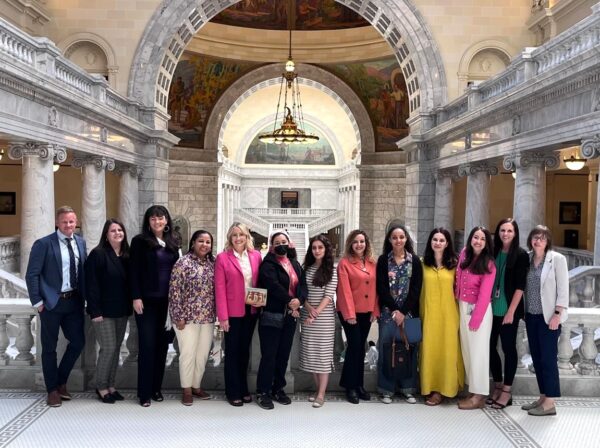Women in Peace, Reconciliation, and Governance

Across conflict zones and political environments, women are often the first to respond to crises—and the last to leave the negotiation table. Recognizing this, the International Visitor Leadership Program (IVLP) brought together six emerging leaders from Algeria, Iraq, Libya, and Saudi Arabia to explore how women shape and sustain governance efforts across sectors and systems.
The program fostered a transnational dialogue on women’s leadership in diplomacy, security, and civil society, showcasing the various ways U.S. institutions elevate women as agents of innovation—from Capitol Hill to local community policing models.
Project Objectives
- Examine the evolving role of women in political leadership, post-conflict recovery, humanitarian response, and peacebuilding processes;
- Explore conflict transformation and mediation strategies in different contexts, including their challenges and local applications;
- Highlight the contributions of women in civil society, government, education, and business to promote stability and resilience;
- Introduce participants to U.S. legal, legislative, and constitutional frameworks that support women’s rights.
Project Design
Washington, DC: The delegation began in the U.S. capital with high-level briefings at Georgetown University’s Institute for Women, Peace & Security, where discussions centered on elevating women’s voices in foreign policy and diplomacy. A meeting on Capitol Hill with Reps. Jen Kiggans (R-VA) and Lois Frankel (D-FL), Co-Chairs of the bipartisan Women, Peace, and Security Caucus, provided insight into U.S. legislative efforts to support peacebuilding.
Kalamazoo and Detroit, MI: In Michigan, the group engaged with local governance and community-based solutions. A visit with the Dearborn Police Department highlighted effective community engagement models in local neighborhoods. Participants also reflected on the power of cultural institutions, such as the Michigan Maritime Museum, in fostering mutual understanding.
Salt Lake City, UT: Utah offered a state-level perspective on policymaking and leadership. An exchange with State Representative Melissa Ballard and other officials sparked strong connections and future plans for collaboration. Participants examined how women legislators navigate political systems to advance governance.
Impact and Next Steps
“As a result of this program, I am a better person with more wisdom.”
“I was impressed by how the police in Dearborn, Michigan really worked to build a relationship with the local community.”
“The Maritime Museum gave us ideas about how to tell stories effectively.”
“Home hospitality gave us a chance to know more about American culture and generosity.”
“I was impressed by how the police in Dearborn, Michigan really worked to build a relationship with the local community.”
“The Maritime Museum gave us ideas about how to tell stories effectively.”
“Home hospitality gave us a chance to know more about American culture and generosity.”
Visitors are returning home with hopes to:
- Collaborate with Georgetown University’s Institute for Women, Peace & Security on joint research initiatives.
- Organize a follow-up working group among participants and Utah legislators to continue dialogue on subnational policymaking and women’s leadership.
-
Participants are exploring how to adapt storytelling and public engagement strategies from cultural institutions like the Maritime Museum to peacebuilding efforts in their home countries.
Project summary
| Women in Peace, Reconciliation, and Governance | |
|---|---|
| Number of Visitors: | 6 |
| Regions: | Near East and North Africa |
| Countries: | Algeria, Iraq, Libya, Saudi Arabia |
| Impact Areas: | Security and Defense |
| Program Areas: | Global Leadership |